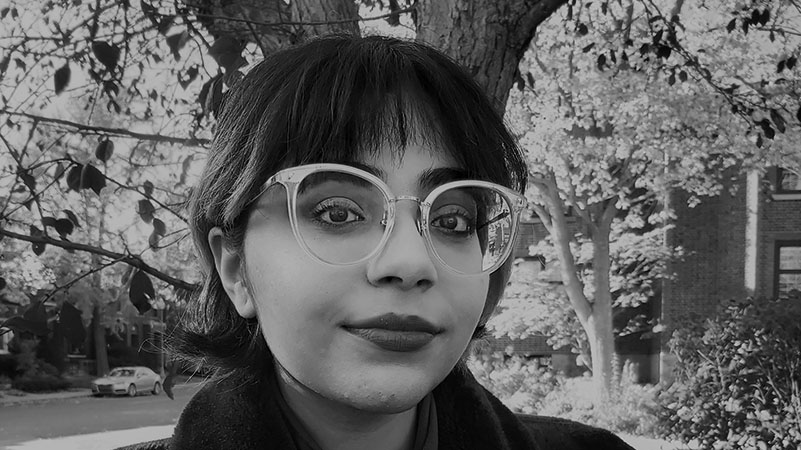by Mirabel

As a person of colour in Canada, I have noticed that artists find it difficult to talk about money. It doesn’t make for casual conversation at a literary event. Understandably. It is hard to bring up money while you use silverware to delicately place cheese over crackers, while holding a glass of wine. Surrounded by the paraphernalia of abundance, money appears always as an afterthought.
At the same time, there are efforts to provide financial support and compensation to artists who are Black, Indigenous, and other People of Colour (BIPOC). In the wake of the Black Lives Matter demonstrations of 2020, and the Stop Asian Hate campaign of 2021, many literary organizations are beginning to grapple with the socioeconomic disparity between BIPOC and non-BIPOC artists.
However, many opportunities for BIPOC artists—yes, even those who are paid—fall short if editorial boards and literary organizations remain predominantly white. As an editor, I have sat in staff meetings in which I am the only person of colour in the room, assessing which pieces meet the standards of the organization and which should be rejected.
What I have experienced is demoralizing. While many of my non-BIPOC peers understand the need for financial reimbursement, they fail to realize that their expectations about what to expect from a so-called “good piece of writing” depend on the premise that BIPOC artists have the same amount of time available for creative work as their non-BIPOC competitors.
Such an approach is at best tone-deaf. In fact, I believe such groupthink enables the systemic underrepresentation of BIPOC artists.
Why?
For BIPOC individuals, who are more likely to come from lower-income backgrounds, time is money.
And some of us are living on borrowed time.
First-generation immigrants on closed work permits. Asylum seekers waiting years just to get a tribunal date. Newcomers whose blue-collar jobs are the only way to make a living in an unfamiliar country. And so it goes.
It is not reasonable to expect such individuals to complete a Master of Fine Arts or to attend schmoozer after schmoozer just to get acquainted with the literary scene.
However, those with white and settler colonial backgrounds—who often coordinate or lead such activities—feel that such hurdles are part of the process of getting published.
In short, non-BIPOC artists benefit from what I consider the intergenerational inheritance of time, time which does not have to be spent working for survival and can therefore be used for creative pursuits. Just as one can trace the movement of money across generations, one can trace the inheritance of such time.
Although it is an imperfect comparison, I find the exchange rate between currencies a compelling way to imagine the inheritance of time suited for creative work. BIPOC individuals have a creative currency less favourable than that of their non-BIPOC peers, but are expected to pay the same price, if not more, to succeed. Moreover, BIPOC individuals risk having their work typecast and their achievements tokenized.
If the Canadian literary scene truly wishes to promote diversity (and I want to believe this is the case), then we must radically reimagine what we expect from artists. Specifically, we must acknowledge that the gatekeeping of BIPOC voices occurs not just because of financial costs by way of fees, but through the opportunity cost of spending time trying to get published in lieu of working.
Additionally, we must acknowledge that literary spaces do not become havens simply because creativity is therapeutic. On the contrary, racial minorities are vulnerable to underperforming due to a lack of creative time, making it difficult to put forth their most thoroughly edited work. Equally, minority writers are prone to overworking due to a lack of collective respect for their creative energy. As a result, it is more difficult for BIPOC artists to mindfully navigate the literary industry.
We must unlearn the idea that art is a labour of love. Art is a labour of love for those with financial and social security. For those who fall on the margins, art is what is done instead of labour, and many marginalized folks aren’t able to choose the former. Presently, workarounds to immediate financial barriers are ad hoc. In my own experience, inquiring about fee waivers and alternative submission methods for BIPOC artists can take days if not weeks, placing the onus on BIPOC writers to be proactive in a way that preempts the needs of literary institutions, rather than the other way around.
Literary publications must take the time to examine the makeup of authors they work with and of the editors who screen and manage submissions. Even if non-BIPOC editors have the best intentions, their latent biases can work against BIPOC authors. Publishers with a record of publishing “prestigious” content often accept an extremely small amount of the volume of submissions they receive, making it that much more important to limit racial biases.
At the level of the press, it can seem tempting to work with artists who have secured their own following, say on social media. In fact, certain presses openly discourage writers without a significant readership from even inquiring about publishing opportunities. However, such a mindset directly excludes BIPOC artists with compelling voices who may not have enough time to garner and sustain a trackable following.
The changes I suggest cannot occur without non-BIPOC members of the literary community confronting the privilege they have and recognizing that their comfort is less important than the safety of their BIPOC counterparts. In other words: If you have the time, pay it forward.
ABOUT MIRABEL/AVLEEN K. MOKHA

Avleen K Mokha, also known as Mirabel, is a Montreal-based poet who grew up in Mumbai, India. Mirabel holds a B.A. in English Literature and Linguistics from McGill University and was the 2019 winner of McGill’s Peterson Memorial Prize for Creative Writing. Mirabel’s poems have appeared in carte blanche, Yolk Literary, and Dream Pop, with work forthcoming in Glass: A Journal of Poetry. Her writing has been supported by the Quebec Writers’ Federation Fresh Pages Initiative for underrepresented writers. Presently, Mirabel is the spring editorial intern at Pittsburgh-based Creative Nonfiction. Mirabel also serves as an editor and literary liaison for Persephone’s Daughters, a magazine devoted to survivors of abuse. Mirabel’s debut poetry chapbook, DREAM FRAGMENTS, was published by Montreal’s Cactus Press in fall 2020.